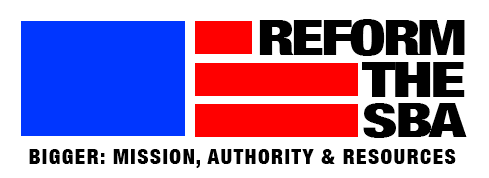Herald-Tribune (Sarasota, FL)
May 10, 2021
By Frank Knapp Jr.
I recently had the great pleasure of visiting Sarasota as I drove around Florida talking to the media.
In addition to the wonderful weather, the core of the city was vibrant; coffee shops and restaurants were bustling with customers. These and other locally owned small businesses give our communities the life that residents and visitors love.
Unfortunately, not every community in this country enjoys this small business vitality. Today the nation is at a 40-year low in new business startups. The concern is great.
In the fall of 2019, before the pandemic, Congress introduced bipartisan legislation that called for research to be done to determine what barriers existed for entrepreneurs seeking to start small businesses. That’s vital to know because economists tell us that all net new jobs in America are created by businesses that are less than 5 years old and have four or fewer employees.
The startup problem is particularly a crisis in rural and underserved communities with much higher rates of unemployment than Sarasota County’s 4.1%. All of us want our distressed areas to do better economically. It lifts the living standards in these communities and also makes them better contributors to the economic health of America as a whole.
Unfortunately, however, government efforts are often overly focused on trying to recruit big businesses to locate in distressed areas – and those efforts have too often resulted in failure. If we really want to grow our rural and underserved communities, the answer is to help them grow from the bottom up through entrepreneurship.
We do not need to wait for research to confirm one of the most significant barriers for entrepreneurs: a lack of access to capital. The traditional way for entrepreneurs to seek startup capital is to go to their local banks and ask for loans. But while that method might have worked years ago, it is simply not getting the job done today.
There are 68% fewer banks in the United States today compared to 1980 due to consolidation and failures – in fact, entrepreneurs in many rural and underserved communities don’t even have a local bank that they can walk into. But the issue goes beyond the number of banks.
With the average capital needed for a small business startup loan being about $10,000 – and a micro business only needing about $3,000 on average to start – these loans simply do not offer good returns on investment for many banks.
In addition many banks and credit unions view small business startup loans as too risky. Even if the lender takes advantage of the Small Business Administration’s 7(a) loan guarantee program, getting back 80% to 90% of a failed small loan is still a loss for the lender in terms of administrative time and money. That in turn often leads lenders to focus on making larger loans to established businesses that are viewed as less risky.
In short, it has become a vicious cycle for many entrepreneurs: Small business startup loans are viewed as too small for some traditional lenders – and too risky for others.
But the fact is there are alternative lenders for small businesses.
America has more than 570 nonprofit community development financial institutions with revolving loan funds to help underserved-community businesses. However, only slightly more than 200 of these community development financial institutions do startup loans.
There are also 175 Small Business Administration-certified nonprofit micro lenders across the country. Unfortunately, last year they made on average only 33 loans from their revolving loan funds – and not all of them were made as startup capital.
And because both community development financial institutions and micro lenders use revolving loan funds, they also tend to be risk averse since failed loans reduce the funds they need to make other loans.
Small business organizations have launched a campaign to tackle the crisis of the 40-year low in new business startups. One of our recommendations addresses the “too small, too risky” issue for startup loans.
We recommend that the Small Business Administration make direct loans of less than $20,000 for startups and micro businesses from a fund set up by Congress specifically for this purpose. These loans should be largely targeted to rural and underserved communities – and particularly to entrepreneurs of color and women.
The Small Business Administration should contract with community development financial institutions and micro lenders for the management of these loans. It should also be instructed to take much more risk on these small loans and dramatically increase startups where America needs them the most – in our rural and underserved communities.
Our national campaign – “Reform the SBA: BIGGER Mission, Authority and Resources” – has the support of the American Sustainable Business Council, the American Independent Business Alliance, the U.S. Green Chamber of Commerce and state and local business organizations.
Sarasota is blessed with a vibrant small business community. Our goal must be to foster similar entrepreneurial growth in our county’s neediest areas.
Frank Knapp Jr. is the CEO of the South Carolina Small Business Chamber of Commerce and a board member of the American Sustainable Business Council. Knapp is also the campaign coordinator of the “Reform the SBA: BIGGER Mission, Authority and Resources” initiative.


